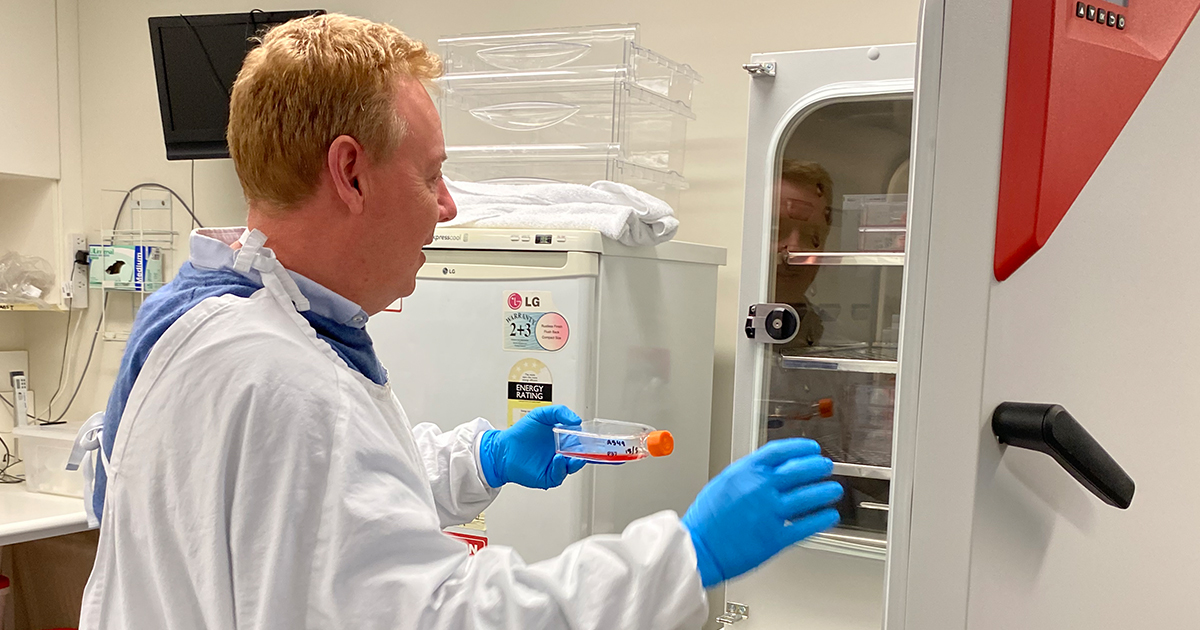The Woolcock Institute of Medical Research

Connecting our lab to patients
As a biologist and Research Leader of the Woolcock’s Respiratory Cellular and Molecular Biology group, Distinguished Professor Brian Oliver has spent much of his career in a lab looking through a microscope.
While his focus is on providing solutions for patients, his work involves only “bits of them” – the samples and bio-specimens which he examines to inform the diagnosis and treatment of respiratory disease.
Medical research has found good solutions for many people with respiratory diseases, he says, asthma being a case in point.
“Early in my career there was shift away from research on asthma, with many of the luminaries in the area considering that we had done all we could for the treatment of asthma.”
Is Asthma "Done"?
“That may be the case. Your average person with mild asthma can, in my opinion, be adequately treated with standard medications and advice from a healthcare provider around preventing flare ups, monitoring of their disease and medication adherence. But, severe asthma is a totally different entity – people have lung transplants because of severe asthma, people die of severe asthma – it can be a very debilitating disease. It’s something that you wouldn’t wish on anyone.”
The issue is further complicated by today’s improved clinical classification and diagnosis of disease.
“At the start of my career it was pretty simple – you had asthma or you didn’t. And if you had asthma, it was either mild or severe. Now there’s multiple phenotypes and endotypes of asthma – a phenotype is based around a physical characteristic of disease and an endotype is based around a biological description of that phenotype. We now know of at least 20 different types of asthma.”
That means the treatment of respiratory disease is evolving. Patients are being phenotyped to allow for more targeted, personalised treatment rather than one-size-fits-all approaches that may mean treating unnecessarily.
Where to Next?
And that’s where patients come back into the picture for Professor Oliver.
“When you’re doing studies in the lab, you need to actually know what you’re dealing with, what type of asthma are you looking at? What actually are the samples in front of you?”
“The only way forward is to work with people who are working with patients and doing the best possible characterisation of disease. Then you can take samples which are contemporary and apply modern technology to the analysis of those samples to find solutions.”
He’s excited by the prospect of doing just that with the medical staff at Macquarie University Hospital, many of whom he has known for decades but has had limited opportunities to work with.
“I’m looking forward to reconnecting with those people and with the clinical side of research, to being closely connected to the hospital system and having access to a full clinical service. That may sound funny when you think about what I do here but, at the end of the day, I want my research to make a real difference to people’s lives.”
Want to stay up to date with our research on sleep and respiratory conditions?
Sign up to our monthly newsletter
Targeted Solutions
“The type of experiments that we can do will allow us to develop new treatments for particular types of disease. If you take asthma as a catch-all, patients with severe asthma are those for whom the standard medication just doesn’t work. Whatever form of asthma they've got, it’s evolved and typically that could be for all sorts of reasons. It’s only by having an understanding of what’s gone wrong on a biological level in that particular type of asthma that we can start to develop treatments which are unique to it. And, even if you’re looking at something that is happening in 0.1% of people with asthma, when you have such a prevalent disease, that’s still a big number of lives you’re going to improve.”
By closely collaborating with the clinicians and researchers at Macquarie University Hospital, Professor Oliver believes that the next avenue for his research will be decided by the clinical need of the patients.
“My research has never been tied to one disease in particular. For me, it’s about trying to provide solutions for patients where none exist.”










